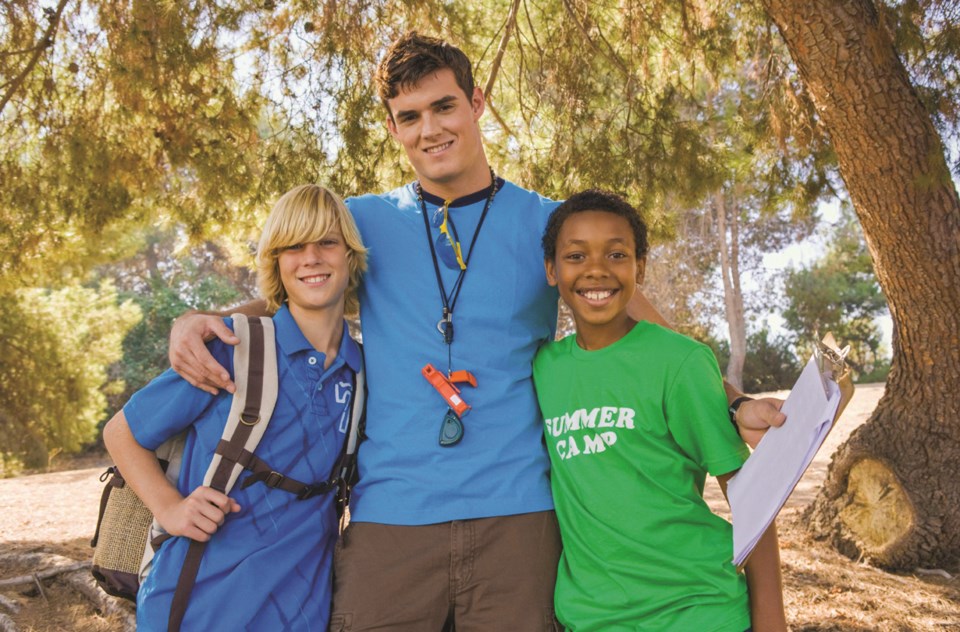Summer camp is a beloved tradition in many families.
Many parents of young children fondly recall spending their summers at camp, where they made lifelong friends and learned the finer points of roasting marshmallows and competing in three-legged sack races.
Parents looking for the right summer camp for their kids will soon discover there are various types of camps, each offering youngsters something different.
The following are some of the summer camp options parents can expect to encounter as they search for the right camper for their kids.
Day camp
Day camps are not overnight camps, which means kids will return home each night rather than sleep over at camp. Day camps typically offer many of the activities people have come to associate with camps, including crafts, sports and even day-trips to experience local culture or attractions. Many day camps are co-ed, and counselors typically live within the community.
Faith-based camp
Faith-based camps offer many of the same activities as more traditional summer camps, but do so while simultaneously offering campers the opportunity to celebrate and further explore their religious beliefs. Some faith-based camps may focus heavily on religion, incorporating faith into daily camp activities, while others may be more subtle with regard to integrating religious beliefs and lessons into camp activities.
Sports camps
Some summer camps focus on a particular sport, catering to young athletes who want to further develop their athletic talents. Sports camps may feature guest lectures and lessons from notable local athletes and coaches, while some camps may provide instruction from current and/or former professional athletes.
Some sports camps are overnight, while others are day camps.
Family camps
Family camps are opportunities for the whole family to enjoy the summer camp experience. Family camps typically tailor their activities around tasks families can complete together, with counselors providing assistance when it’s needed. Family camps may be faith-based or secular, and families typically stay overnight, sleeping in facilities on the campsites or in lodging away from home.
Special needs camps
Parents of children with special needs can still send their kids to summer camp, as there are many camps that cater to such youngsters. Special needs camps may cater to campers who are blind, deaf, learning disabled, or mentally or physically disabled. Staff at special needs camps typically undergoes extensive training, which helps to calm some of the fears parents may have about leaving their special needs children at camp. Facilities at special needs camps are often built to accommodate the specific needs of campers.
Tips on booking summer camps
Summer camp season is just around the corner. Each summer, millions of children depart for campsites around the country to swim, hike, craft, and enjoy the companionship of friends.
Summer camps in North America were first established in the 1880s and were attended by children without their parents for overnight stays. By the 20th century, summer camps had become an international phenomenon, and various organizations hosted traditional camps or camps geared toward religion, sports, music and other subjects and activities. Nonprofit groups are the largest sponsors of summer camps.
Many people put off summer camp planning until it is too late. Parents should keep in mind that camps begin registration early in the year and have specific cut-off dates for enrollment. Parents who want to beat the crowds this year can use this guide to help plan a summer camp agenda.
• Attend an orientation seminar: Take the time to visit prospective camps for a tour, and use this open house as an opportunity to learn more about the programs offered. If available, find a camp employee to discuss your child’s eligibility for enrollment. Some camps may offer webinars for convenience.
• Fill out the enrollment package completely: Each camp has their own requirements for registration. Expect to submit some personal information, including a medical background and proof of insurance, names and numbers of emergency contacts, and any other pertinent information as it applies to the camper. This may include allergies, fears, physical or mental disabilities, or even preferences in camp courses.
• Establish payment schedules: Summer camps vary in price. Camp costs range from $100 to more than $1,500 per week. However, many accredited camps offer some sort of financial assistance for children from families with limited financial means. If cost is a factor, be sure to broach the subject.
• Prepare children for the physical challenges: Summer camp activities may be rigorous, and campers may need to be cleared by a physician before starting. Be sure to schedule your child a physical and bring along any pertinent forms. Children also can increase their levels of physical activity compared to the often sedentary nature of winter. Such preparation can prevent injuries when engaging in outdoor and physical activities.
• Shop for supplies: Camps are likely to provide a list of requirements with regard to clothing and other equipment campers will need. Make sure kids have enough shorts, T-shirts, socks, athletic shoes, swimsuits, toiletries, and other camp necessities before they leave.
• Keep children in the loop: Engage children in the planning process to help alleviate their fears and get them excited about summer camp.
Summer camp can foster lifelong memories. Parents can help kids prepare in advance for the fun that›s soon to arrive.



